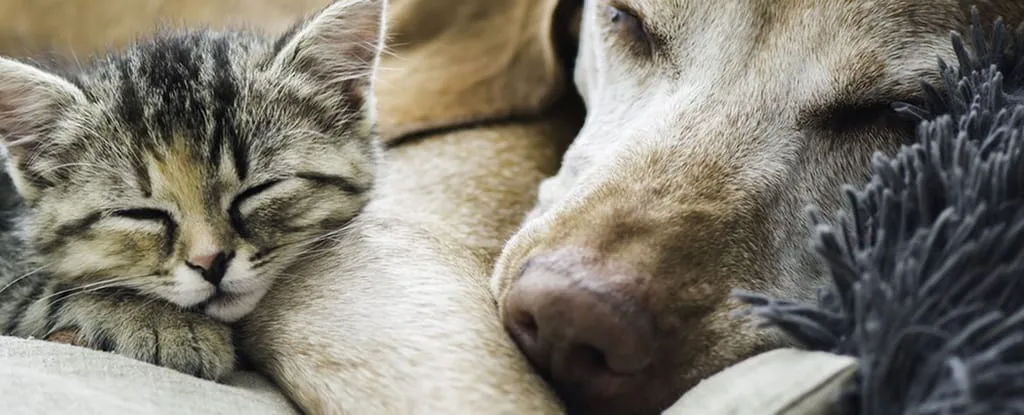GI Stasis: The Rabbit "Silent Killer"
 Perhaps the most common of all rabbit emergencies that we see is the pet rabbit who becomes suddenly very sick and stops eating. On
presentation, we frequently find that these bunnies are also lethargic, producing little or no stool, and may have a dangerously low body temperature. This combination of symptoms is
considered a medical emergency, as these patients decline quickly.
Perhaps the most common of all rabbit emergencies that we see is the pet rabbit who becomes suddenly very sick and stops eating. On
presentation, we frequently find that these bunnies are also lethargic, producing little or no stool, and may have a dangerously low body temperature. This combination of symptoms is
considered a medical emergency, as these patients decline quickly.
Our diagnosis in these cases is often a condition called Ileus or GI Stasis. Put simply, it means that the rabbit’s GI system (stomach and intestines) have basically stopped moving (decreased motility). Historically, the owners often report that their rabbits have been in decline for a few days – usually eating less and producing fewer and smaller stools.
In rabbits, GI Stasis is known as a “silent killer.” Its symptoms may appear to come on suddenly and are often not noticed until the pet is very sick. In truth, the bunny may have
been suffering from symptoms for days or even weeks, but may have been hiding signs that they were ill.
Rabbits, like birds, guinea pigs, and rats are technically “prey animals.” Prey animals’ instincts tell them to hide signs of illness to prevent becoming the victim of a predator
looking for an easy meal. As a result, these pets often don’t show obvious signs of illness until they are too sick to hide it anymore. Owners of prey animals must look for subtle
signs and changes as an indicator of potential problems.
Symptoms of GI Stasis
Detecting Ileus early means being aware of your rabbit’s behavioral, dietary, and elimination habits.
Early signs may include*:
- Decreased or finicky appetite
- Changes to stool production:
- Smaller stool
- “Runny” stool (aside from night cecotropes)
- Fewer stool
- Decrease in normal activity level
More serious symptoms include
- Eating little to no food
- No stool production
- Extreme lethargy
- Body temperature below 99⁰ Fahrenheit
*please note that these symptoms can be indications of other medical problems, so a proper veterinary diagnosis is important.
Causes
GI Stasis is very often related to stress, dehydration, pain from another condition, or other illness. It can be the rabbit’s primary problem or a
secondary symptom of another condition.
As a primary problem, Ileus is usually related to husbandry problems (improper diet and housing), psychological stress, or can be idiopathic (without apparent cause) in origin. GI Stasis can
also be a secondary condition of another problem. It may be related to poor dental health (a common problem in pet rabbits), pain from a medical condition, or urinary tract
disorders. In general, a condition that causes dehydration (from rabbit not eating/drinking), pain, or stress can result in GI stasis.
Treatment
 GI stasis is normally
considered a medical emergency which requires intervention by a rabbit-experienced veterinarian. The initial treatment is aimed at correcting dehydration, pain and low body
temperature. Medications to encourage GI motility (movement of the stomach and intestines) are normally added in during the early stages of treatment, as well.
GI stasis is normally
considered a medical emergency which requires intervention by a rabbit-experienced veterinarian. The initial treatment is aimed at correcting dehydration, pain and low body
temperature. Medications to encourage GI motility (movement of the stomach and intestines) are normally added in during the early stages of treatment, as well.
Once the rabbit is “stable” the veterinarian and owner can attempt to find the root cause of the rabbit’s distress. Husbandry concerns, dental problems, stress, and pain levels will be addressed in an effort to completely resolve the condition and prevent recurrence.
As with most medical problems, the earlier treatments are started the better, so as a rabbit owner it is important to know the early signs of this dangerous condition.
Prevention
Prevention of GI stasis involves preventing or treating the underlying causes:
-
Proper diet and husbandry: Diet is particularly important to pet rabbits. Improper diet is one of the primary causes of GI stasis, obesity and several other
bunny health problem:
- Hay: Quality hay should make up the vast majority of a pet rabbit’s diet, as it is an extremely important source of roughage. Grass hays, especially Timothy, should always be clean and plentiful in a rabbit enclosure, and rabbits should be encouraged to eat this as their primary source of food. Avoid feeding Alfalfa, as it is can be too high in protein and calcium for adult rabbits.
- Starchy treats: treats high in sugars and starches can be very hard on a rabbit’s digestive tract, and are discouraged. This includes all fruit and grains, especially apples and bananas.
- Dental Health: Domestic rabbits are especially prone to dental issues, notably overgrown teeth and dental abscesses. In both cases, rabbits will often stop eating and drinking. This lack of content in the digestive tract will result in slowed intestinal motility and dehydration, leading to stasis.
- General Health: Monitor your rabbit for other signs of pain or illness, as pain can cause your pet to lose their appetite, cause intestinal motility to decline, and can lead to stasis.
- Yearly checkups – while veterinary visits can be stressful, regular (yearly) veterinary visits will give your vet a chance to make a professional assessment of your rabbit’s health. Early detection of problems can mean easier treatment and even prevention of complications such as Ileus.
- Stress Reduction: Rabbits are especially prone to outside stressors and may respond by “shutting down” (not eating/drinking and or GI Stasis). Major changes to the household and your pet’s environment, etc. should be done gradually, if at all possible. Do what you can to shield your pet rabbit from unexpected chaos in the household such as construction, home visitors, and other stresses.
Please note that Ileus does not always have an obvious cause. We have seen the very best rabbit owners’ pets suffer from GI stasis. While it is important that owners do what they can to prevent the condition, it is vital that all bunny stewards know the early signs of GI Stasis, so treatment can begin as early as possible.
If you have any concerns about this condition or your rabbit's health, please do not hesitate to contact us at (760) 634-2022



